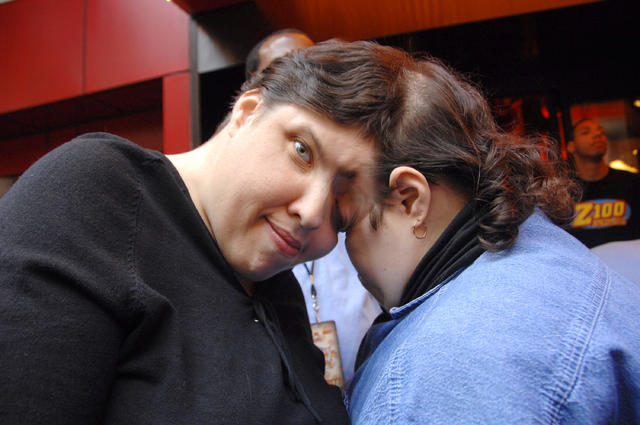Lori and George Schappell, the world’s oldest living conjoined twins according to Guinness World Records, passed away this month at the age of 62. Their story, documented in numerous television specials and defying medical odds, serves as a testament to the resilience of the human spirit and the power of living life to the fullest, even in extraordinary circumstances.
A Life Lived on Their Terms: Separate Passions, One Journey
Born in 1961 in West Reading, Pennsylvania, Lori and George were conjoined at the skull, sharing a head but possessing distinct brains and personalities. George, who had spina bifida, relied on Lori for mobility and navigated their world with the help of an adaptive wheeled stool. Despite their physical connection, the twins strived for independence throughout their lives.

“It was very important to both of us to live as independently as possible,” their obituary stated. This dedication to independence manifested in their varied passions and career paths. While Lori excelled as a “trophy-winning bowler,” George pursued a career in country music.
Their story transcended the limitations some might have expected. Lori, at one point, was even engaged to be married, highlighting their ability to forge individual connections while sharing a life.
Overcoming Obstacles: Education, Careers, and Public Appearances
Despite the challenges posed by their conjoined state, the Schappell twins graduated from high school and pursued further education. George, accompanying Lori during her college classes, exemplified their unwavering support for one another.
Their journey wasn’t limited to the classroom. Lori eventually left her hospital laundry job to support George’s dream of becoming a country music singer. This selfless act showcased their commitment to individual aspirations within their shared existence.
The twins didn’t shy away from public life. They embraced opportunities to share their story, appearing in documentaries, talk shows, and even an episode of the medical drama “Nip/Tuck.” Through these appearances, they not only educate the public about conjoined twins but also challenge societal perceptions of disability and the limitations it might impose.
A Bond Beyond Separation: Choosing Unity Over Surgery
While surgical separation was a theoretical possibility, the Schappells firmly rejected this option. They viewed their conjoined state not as a limitation, but as a unique bond they wouldn’t sever.
“You don’t mess with what God made, even if it means you enjoy both children for a shorter time,” Lori once told The Associated Press. This sentiment was echoed by George, who stated, “Why fix what is not broken?”
Their unwavering commitment to one another and their acceptance of their unique physical reality serve as an inspiration for all who face adversity.
A Legacy of Resilience: The Schappell Twins and Conjoined Twin Statistics
The Schappell twins’ passing leaves a void in the world of conjoined twins. While the exact successor for the title of “oldest living conjoined twins” remains uncertain, their story continues to resonate.
Conjoined twins are a rare occurrence, happening in only about 1 in 50,000 to 60,000 births. Sadly, most are stillborn, and only a small percentage are joined at the head, like Lori and George.
The Schappell twins defied the odds not only by surviving but by thriving. They graduated from high school, pursued individual interests, and built a life filled with travel, public appearances, and personal connections. Their story reminds us that human connection and a zest for life can overcome even the most extraordinary physical challenges.




